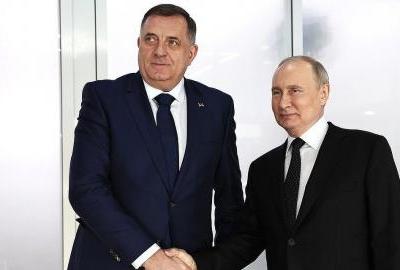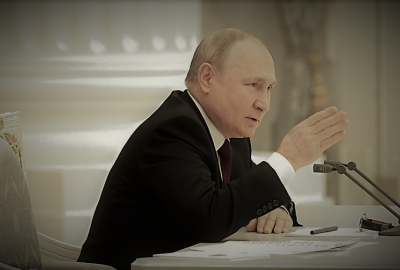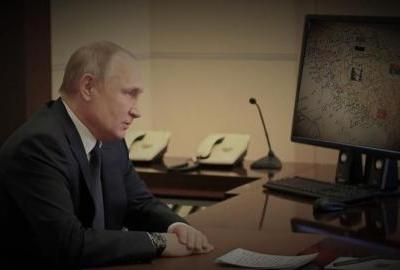Žurnal in English
REMEMBER THIS YEAR AND THE NEXT: Russia Will Lose Its Political Satellites in the Balkans
The fact that the European Union is aware of Russia's malign influence in the Balkans is evident from the statement made by Ondrej Kolar, a Czech representative in the European Parliament who will serve as the permanent rapporteur for Bosnia and Herzegovina for the next five years. In an interview with N1, Kolar stated that one of his objectives is to halt Russian actions in Bosnia and Herzegovina.
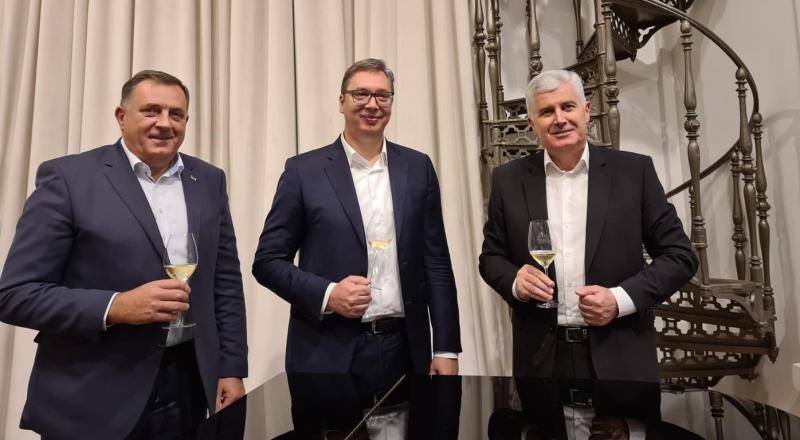
At the beginning of December, during Milorad Dodik's hospital treatment in Belgrade, questions arose about who would replace the President of Republika Srpska, a Bosnian entity, in the event of his inability to perform his duties. One thing is certain when it comes to protecting Russian interests in Bosnia and Herzegovina: when Dodik is absent, Dragan Čović, the leader of HDZ BiH, steps in.
Metaphorically speaking, Čović has placed a shield bearing Russia's coat of arms on the southern borders of Bosnia and Herzegovina, aiming to block an alternative gas supply from Croatia. This act stripped away the last facade of his role as a vocal advocate for European integration, revealing his quiet longing for a stronger Russian influence in Bosnia and Herzegovina.
THE SOUTHERN LPG PIPELINE AND THE EASTERN GASOLINE PIPELINE
The appeals from the US Embassy in BiH regarding the importance of constructing the Zagvozd – Novi Travnik gas pipeline, better known as the "Southern Interconnection," were in vain. This pipeline would initially provide a link to the LNG terminal on Krk. It would also serve as a branch of the future Adriatic-Ionian gas pipeline, which would supply Bosnia and Herzegovina with gas from Azerbaijan, eliminating dependence on Russian gas. Under the guise of protecting Croatian national interests, Dragan Čović conditioned the project on the establishment of a new company based in Mostar, which, as expected, would be managed by the HDZ BiH.
"Words are cheap; actions speak. Čović can continue to repeat propaganda about his pro-European stance as much as he likes, but his actions are pro-Russian. As always, he tries to hide this truth by portraying himself as a defender of the interests of Bosnian Croats. Yet it has long been evident that the interests of Bosnian Croats and Dragan Čović are not the same and are often in direct conflict," writes journalist Gordan Duhaček in an article for the Valter portal.
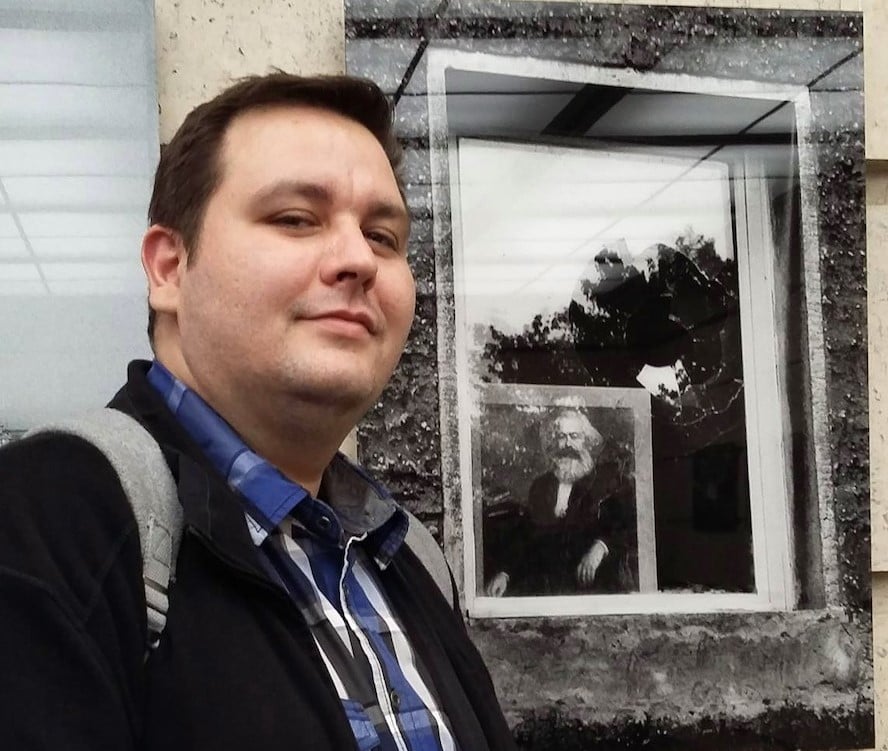
HDZ BiH representatives in the House of Representatives of the Federation of Bosnia and Herzegovina (FBiH) unsurprisingly voted against the adoption of the law, while a full blockade is expected in the House of Peoples of the Federal Parliament. This followed a meeting with parliamentarians where US Ambassador Michael Murphy requested that the issue of the southern LPG interconnection be resolved by the end of December. Notably, Čović's associates were not invited to the meeting, which provoked what could be described as a candid reaction from the Russian Embassy in Bosnia and Herzegovina—particularly in the part where they openly threatened the local population for not supporting their policies.
"Remember this day when all masks of 'democratic' decency were removed, when the sovereignty of Bosnia and Herzegovina was trampled by the rough boot of a 'proven friend.' But the true meaning of this 'picture' is that the Americans have planted a bomb under Bosnia and Herzegovina’s integrity. Through their policy of pressure and sanctions, they are forcing Republika Srpska to take steps to protect its status, which is guaranteed by the Dayton Peace Agreement. It is they who, through their shameless stance, are pushing Croats in Bosnia and Herzegovina to reconsider the fundamental principles of coexistence with Bosniaks within the Federation of Bosnia and Herzegovina…In essence, this is a concrete plan to destabilise Bosnia and Herzegovina, accompanied by tiresome rhetoric about 'Russian malign influence.' To all those naively speaking about the sovereignty and territorial integrity of Bosnia and Herzegovina, we say—remember this day," reads the message from Moscow, delivered via Ambassador Igor Kalabukhov.
The following day, a response arrived from the US Embassy:
"The statement from the Russian Embassy should come as no surprise, as it comes from a country that launched an illegal and unprovoked attack on Ukraine. This is not the first time the Russian Embassy has threatened Bosnia and Herzegovina. These threats specifically highlight Russia's malign influence in BiH. They clearly demonstrate how much Russia fears losing its monopoly on supplying gas to BiH, as well as its ability to exert political and economic pressure on the country. We would like to thank the Russian Embassy for clearly showing the citizens of BiH and its political parties the cynical nature of their so-called 'friendship' with BiH," stated the US Embassy in Bosnia and Herzegovina.
For years, Žurnal has written about the more or less open influence of Russia, which publicly supported a unified Bosnia and Herzegovina, while simultaneously backing all secessionist actions of Milorad Dodik.
"Interfering in the internal affairs of a country where they are on a diplomatic mission and attempting to steer the host away from its planned path is a regular activity for Russian diplomats in this part of the world. Kalabukhov calmly advises the citizens of Bosnia and Herzegovina to abandon their path to the European Union, justifying this friendly advice with the supposed institutional and moral degradation of the European community of nations... According to Kalabukhov, the moral community is the one that supports the executioner, and the most moral one would be the one that helps the butcher to kill the victim. Interesting ethics; there is no member of a criminal gang or mafia family who wouldn't agree with its principles," says Belgrade journalist Tomislav Marković for Žurnal.
In response to the adoption of the law on the Southern Interconnection in the House of Representatives of the Federal Parliament, in Dodik's absence, loyal media outlets in Republika Srpska reminded readers of his words that there would be no Southern Interconnection unless the construction of the Eastern Interconnection, exclusively through the territory of Republika Srpska, was approved. This would supply Banja Luka with gas via Bijeljina.
"We are not against the Southern Interconnection, but we are against the fact that we are being prevented from building a similar gas pipeline on the other side," Dodik said.
 THE STRUGGLES OF PUTIN'S PETMilorad Dodik Wants to Play for Russia with Western Money
THE STRUGGLES OF PUTIN'S PETMilorad Dodik Wants to Play for Russia with Western Money
RUSSIA BEHIND ČOVIĆ
When did Čović's "love" for Russia begin?
Russia is not content with only Republika Srpska as its "reserve strategic position" and has added HDZ BiH and Dragan Čović to the equation, the author of the aforementioned statement: "Unfortunately, there is very little Russian influence in Bosnia and Herzegovina."
After that, Čović, like Dodik, secured a photo opportunity with Russian President Vladimir Putin and actively joined Dodik in politically blocking Bosnia and Herzegovina.
At the end of 2020, before a visit by Russian Foreign Minister Sergey Lavrov, Dodik visited Croatian President Zoran Milanović, and then took Dragan Čović to see Aleksandar Vučić. A year later, President Milanović again hosted Dodik in Zagreb, while Vučić welcomed Čović.
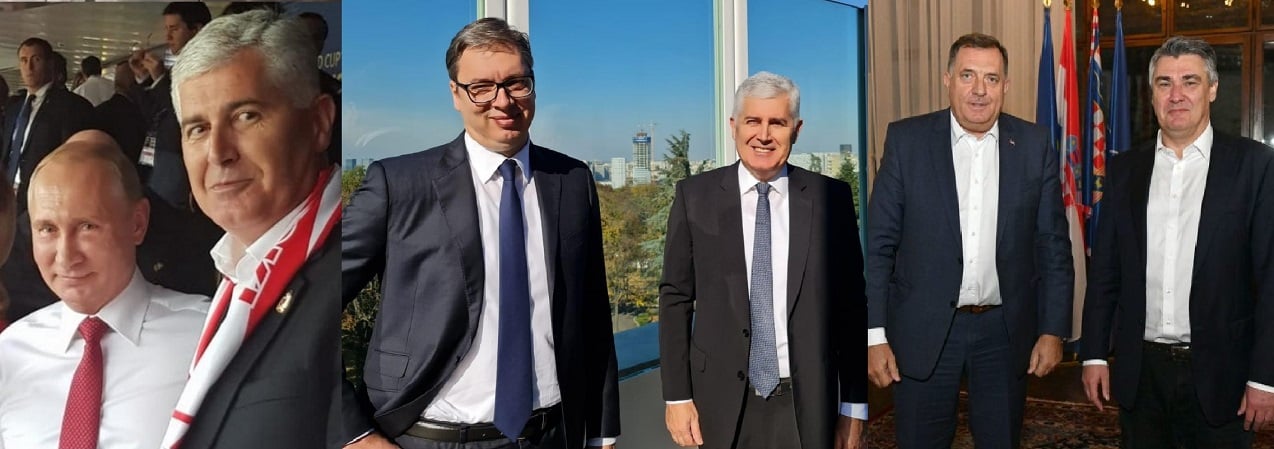
"Čović is certainly pursuing a policy that is essentially a shot in the foot for Bosnian Croats and indirectly for Croatia itself. This so-called pact or alliance with Dodik evidently could not have happened without Russian influence. There are no solid pieces of evidence to show how much Russia actually pushed Čović, but everything points to Čović also being one of Russia’s players in the region, although very cautious, given that he is heavily dependent on Croatia. We know what the politics of HDZ Croatia, particularly Andrej Plenković, are like, so he has to be more careful," explained Jutarnji list journalist Vlado Vurušić for Žurnal.
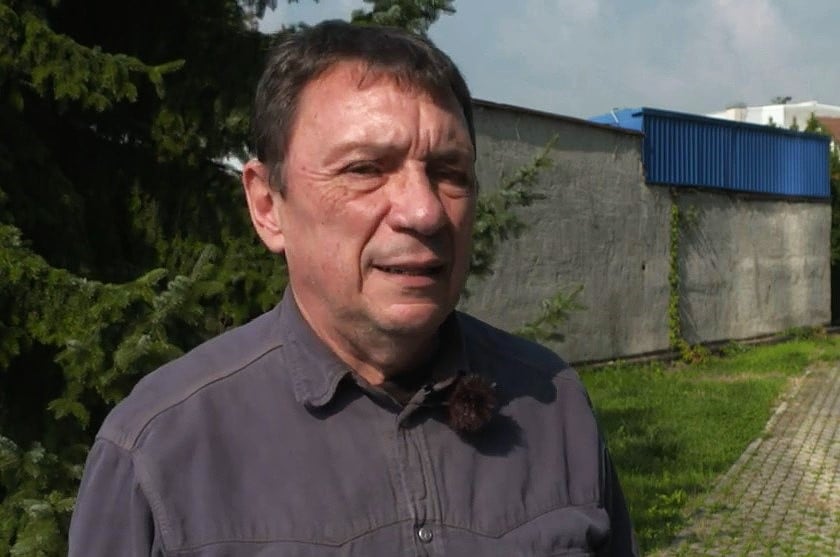
Croatian Prime Minister Andrej Plenković, as a true European apartheid, has so far successfully balanced between the clear need to reduce Russian influence through LPG supplies and the need to publicly avoid rejecting Čović's stubbornness regarding the project, all while protecting the Russian policies "wrapped" in concern for the involvement of Croats in the LPG pipeline management. As a result, he has softened Čović's positions.
"We want to help everyone in the region, including Bosnia and Herzegovina. Our strategic interest is for the pipeline to be realised. Our position is that the structure of the company, which will be on the side of Bosnia and Herzegovina, should include Croats as a constituent people, and I believe a solution will be found that will be acceptable to everyone," stated Prime Minister Plenković.
In this entire scenario, one should not overlook the role of Čović’s favourite "investor" in recent years, Amir Gross Kabiri, an Israeli citizen. Kabiri only rented some of the Aluminij facilities on paper, while in practice, he took ownership of the large factory, which had been systematically plundered by HDZ cadres in previous years.
On 10 February 2020, Dragan Čović visited Russia as a guest of the Speaker of the Federation Council of the Russian Federation, Valentina Matviyenko, a close associate of Putin. Ten days after Čović’s visit, Amir Gross Kabiri registered the company "Aluminij Industrija d.o.o" and began a media campaign portraying his group, later re-registered in Panama, as the last hope for Aluminij. By purchasing raw materials, he pumped 335 million BAM into Russia during its aggression against Ukraine, as Žurnal detailed in its reports.
 COVERING UP CRIMEWatch Žurnal's movie Aluminij, from Tuđman to Kabiri
COVERING UP CRIMEWatch Žurnal's movie Aluminij, from Tuđman to Kabiri
In the past year, it has become noticeable that Kabiri has had frequent meetings with Milorad Dodik and has also attended meetings between the Israeli Ambassador to Bosnia and Herzegovina, Galit Peleg, and the President of Republika Srpska.
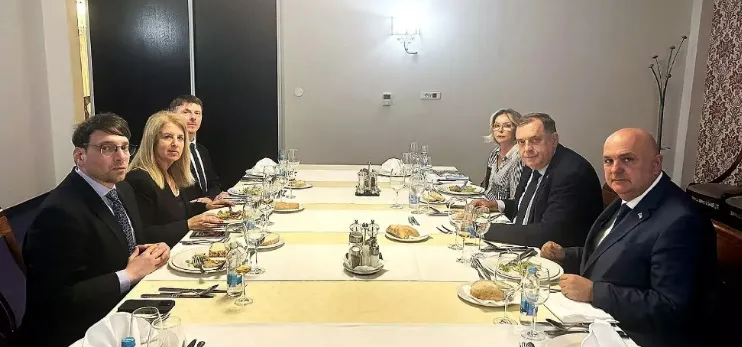
“Russia has influence in Bosnia and Herzegovina and exerts it through Serbia and Croatia. Both countries are, in a way, debtors of Putin’s impoverished empire. Serbia pays for its loyalty with a veto in the UN Security Council, while Croatia does so because of the money pumped into Agrokor. Dodik and Čović, or more accurately, HDZ and SNSD, are proxy entities through which the influence of both countries is realised. They present themselves as individuals with strong backing, and when you analyse their media appearances, you get the impression of power, strength, and invincibility. However, the impression is not the same as reality, which is fundamentally different and does not favour the two of them. The simulacrum they use currently suits both of them because the public accepts the media image and not the reality of a sober mind, nor the factual structure derived from it. In light of the new US policy and strategy towards the Western Balkans, their future is quite certain. It does not exist!", concludes sociologist Sead Pašić.
The European Union's awareness of Russia’s malign influence in the Balkans is also reflected in a statement by Ondrej Kolar, the Czech Member of the European Parliament, who will serve as the EU's rapporteur for Bosnia and Herzegovina over the next five years. Kolar said in an interview for N1 that one of his goals is to stop Russian actions in Bosnia and Herzegovina, but also to prevent Hungarian and Slovak interference, as well as actions taken by Aleksandar Vučić and Milorad Dodik.
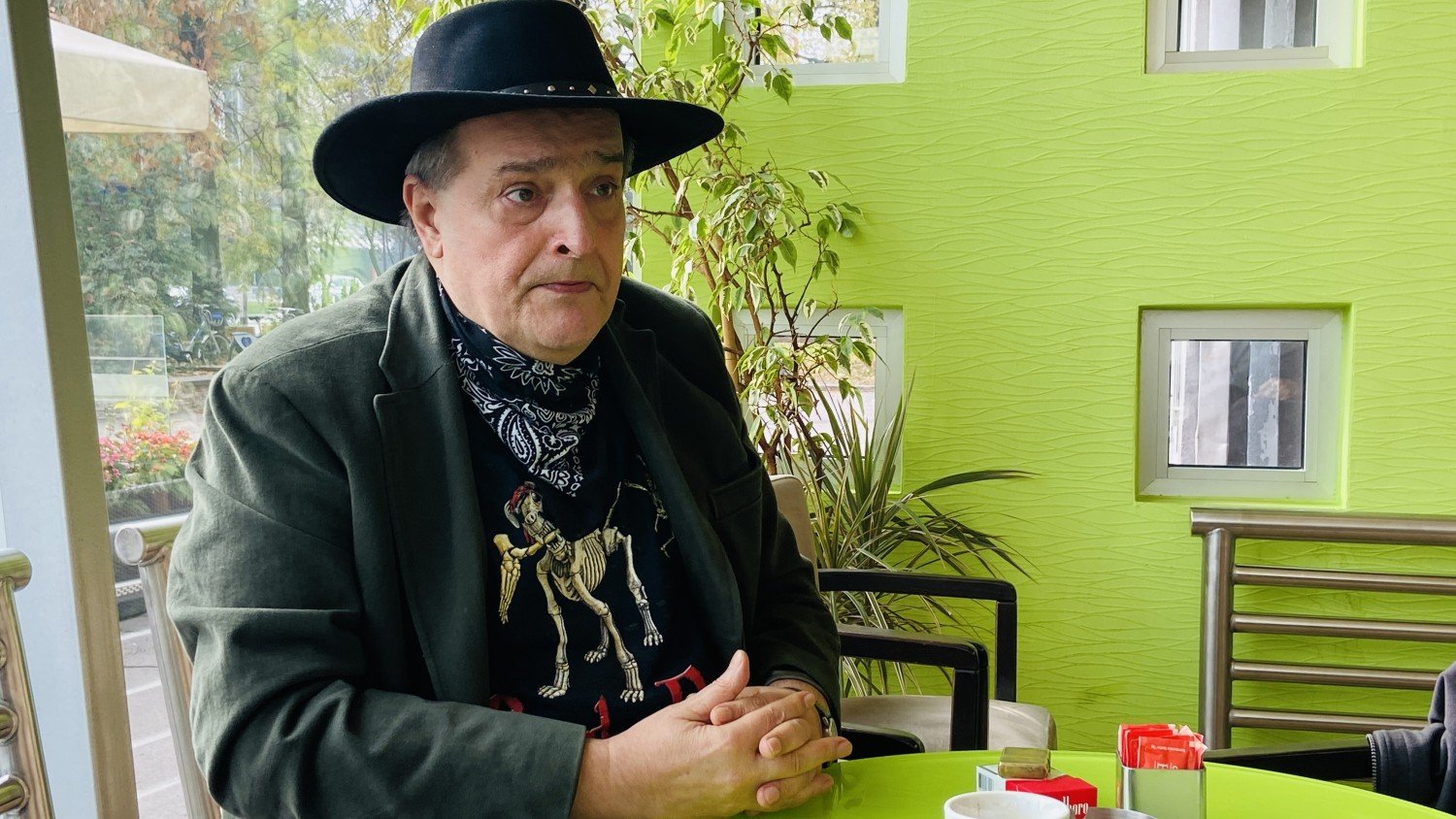
"Every division currently being imposed here is exclusively and solely dictated from Moscow. And do not have any doubt about it, all other world centres – Washington, Brussels, London, Berlin – since the European Union has existed, have an interest not in creating divisions on this territory, but in creating unity among nations and unity among states. That is the goal of the European Union, and that is the goal of the US here. The only one who is creating these divisions is Moscow, doing so strategically for various geopolitical reasons, without going into that now. The moment Europe forms an anti-hybrid headquarters here to fight against this Russian influence, you will see, everything will change in the Balkans in an extraordinarily positive way," claims Belgrade lawyer Čedomir Stojković, one of the harshest critics of Aleksandar Vučić’s regime and Russian influence in the region.
Serbian President Aleksandar Vučić recently announced that he has information that the United States and the United Kingdom will soon impose sanctions on the Serbian Oil Industry, which is majority-owned by the Russian state company Gazprom Neft and its parent company Gazprom. The EU and the US blacklisted Gazprom Neft back in 2014 following Russia's annexation of the Ukrainian peninsula of Crimea. Vučić also announced that Serbia is about to begin negotiations on a gas agreement with Russia, which will expire in May 2025. While the US and the UK have not confirmed Vučić's claims, if this happens, it would inevitably have an impact on Bosnia and Herzegovina.

(zurnal.info)






